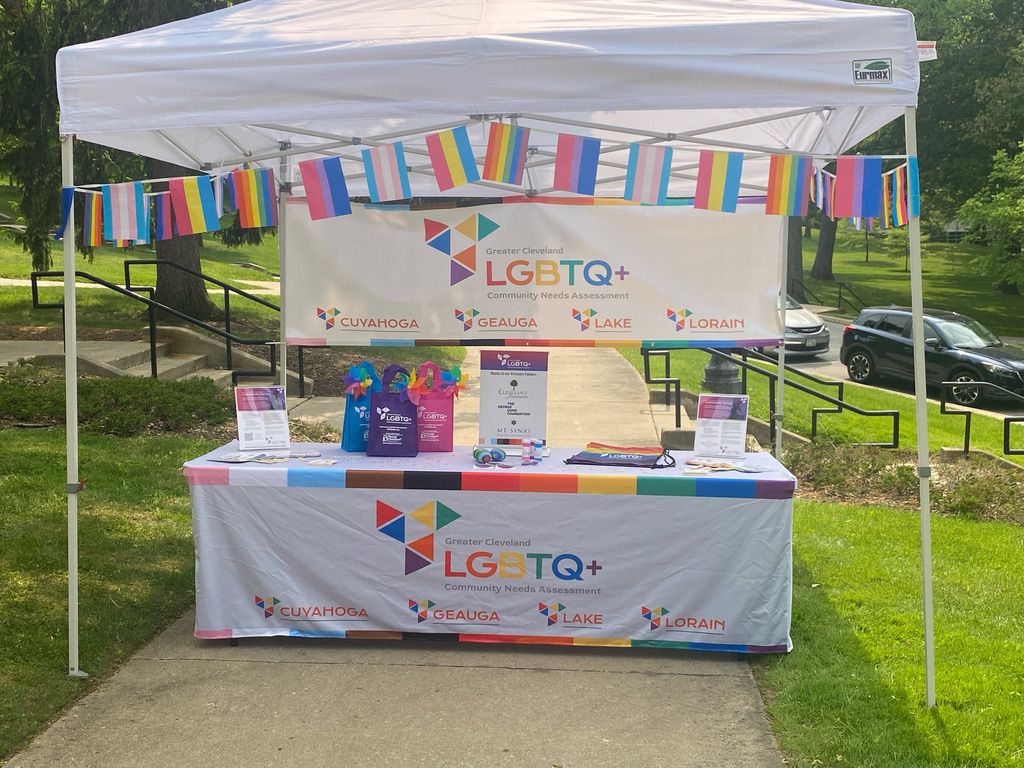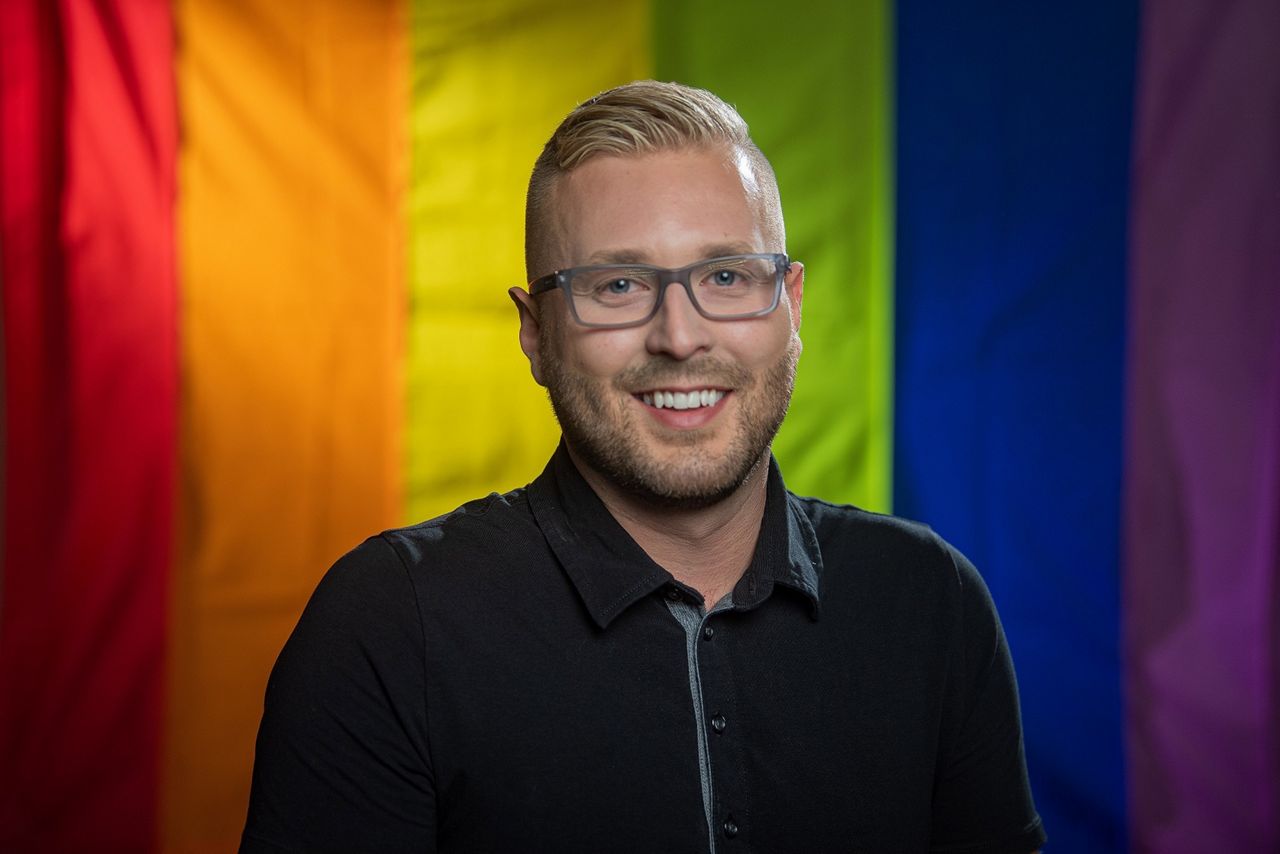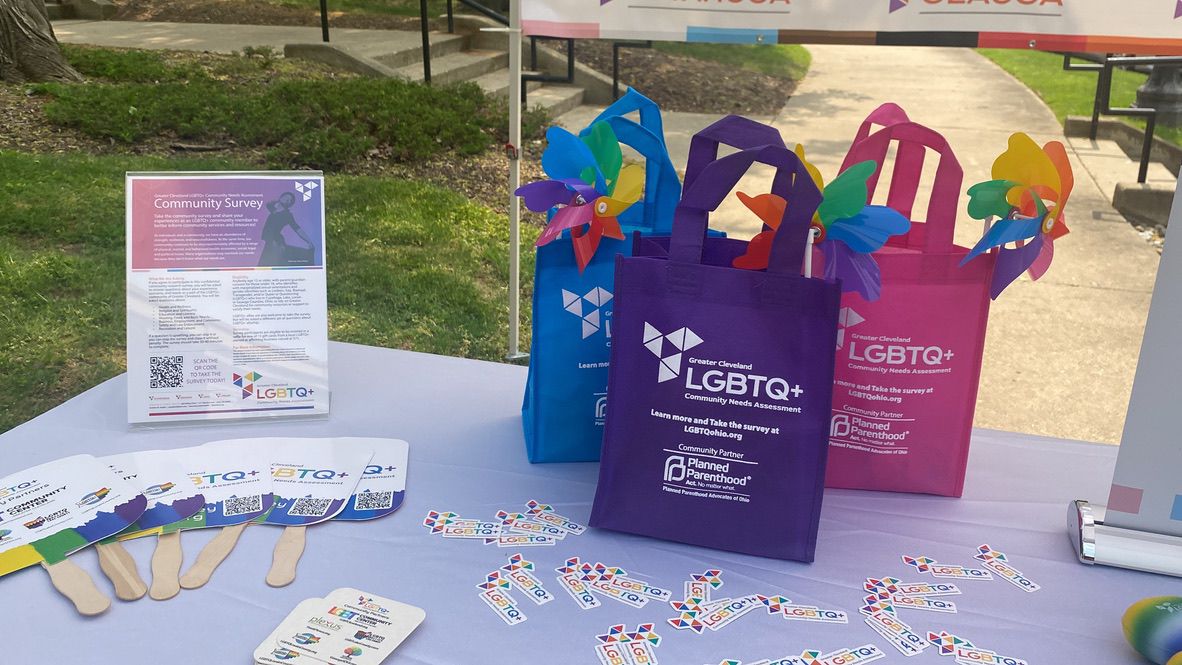CLEVELAND — The first community-led Greater Cleveland LGBTQ+ Community Needs Assessment will launch during the Pride in the CLE Festival.
Pride in the CLE is set for Saturday, June 3, from 11 a.m. to 6 p.m. at Malls B & C in downtown Cleveland.
The 30- to 40-minute needs assessment includes comprehensive questions about participants’ experiences, concerns and needs as a member of the LGBTQ+ community of Greater Cleveland, which encompasses Cuyahoga, Lake, Lorain and Geauga counties.
The goal is to improve vital community services and resources by identifying and addressing the most pressing needs of this growing population, said Andrew Snyder, research program coordinator with the Kent State University College of Public Health. Snyder is completing a doctorate in LGBTQ+ health.
Survey topics include:
- Health and wellness
- Education and literacy
- Housing, food and basic needs
- Business, employment and commerce
- Safety and law enforcement
- Recreation and leisure
- Religion and spirituality
Questions can be skipped, and the survey stopped at any time, Snyder said. The survey also can be completed online.
In addition to the Cleveland study, conducted in partnership with more than 100 Cleveland area organizations, the needs assessment will include focus groups and interviews, researchers said.
Snyder launched an initial needs assessment in Greater Akron in 2021, distributing the survey across Summit, Portage, Stark and Medina counties.
Garnering nearly 1,000 valid and unique responses, Snyder published the assessment results online in a comprehensive report illustrated with an interactive dashboard.
Once the Greater Cleveland assessment is complete, Snyder said the researchers will conduct an assessment in Youngstown in 2025, providing a 16-county snapshot of data to inform vital resources and services for the broader LGBTQ+ community.
The Cleveland assessment is not a copy of the Akron assessment, Snyder said. It has been tailored to the Cleveland area, which is unique in many ways.
Cleveland also has more organizations serving the LGBTQ+ community than Akron.
“So, we're really having to come in strong and throw our hat in the ring and kind of compete for people's time and talent to lend to this project,” he said. “But so far, it's been really well received.”

Since the Akron assessment was completed, Snyder said he has presented the data to many organizations, which are using it in myriad ways.
One is a six-part, continuing-education series being designed to inform Akron-area law enforcement, first responders and legal-aid professionals about serving the LGBTQ+ population, he said.
Four county health departments, including Wayne County, used the data in their own health needs assessments, which was a first for them all, Snyder said.
“That was a huge win because I've never seen that, let alone in red counties in Ohio,” he said.
“Akron showed that there's a process here,” Snyder said. “In Cleveland, my goal is to perfect it, to make sure that this is the best method to go about doing this. When we hit Youngstown, I'm hoping at that point we start to see some statewide structures, recognizing and observing this data.”
The researchers are also working with Healthy Northeast Ohio, a neutral data repository for population health, which is integrating the assessment data, Snyder said.
Last year, when Akron was considering whether to ban conversion therapy for minors, the data was presented to Akron City Council, he said. The information helped council in its unanimous decision to ban the practice city-wide.
Snyder is also developing graduate-level Kent State coursework based on the data that’s geared for public health professionals as well as nursing and premed students.
“All around, it's getting used,” he said. “And that's what it was intended for and the most important part.”

With the wealth of data gathered, Snyder said he was struck by the thoughtful and often pointed responses from participants, especially to the survey’s open-ended questions.
“They want to see more diverse representation in our community, organizational leadership in politics and in our community in general,” he said. “They wanted to promote more inclusive and representative diverse politicians and legislators that will advocate for our issues.”
The assessment includes a separate section for allies, which generated responses Snyder said changed his mind about allies, who are usually the LGBTQ+ community’s strongest supporters.
“What I think is most interesting is that we don't really accept ally-ship as a spectrum,” he said. “We think of it as this binary ‘you're either an ally or you're not right.’ You know, that can be really dangerous, in some ways.”
Understanding where on the ally-spectrum people sit offers an opportunity to provide education and resources, or visibility and exposure, to clarify things they might not understand, like hormone blockers, he said.
“There are countless stories nationwide in cities that have these that have a history of showing that they improve health outcomes, and a lot of other outcomes in a queer community,” Snyder said. “So that conversation continues to go on.”
To be eligible to take the survey, participants must be 12 or older and identify with marginalized sexual orientations and gender identities such as lesbian, gay, bisexual, transgender, and/or queer or questioning (LGBTQ+) and live in Cuyahoga, Lake, Lorain or Geauga counties.
Members of the LGBTQ+ community who rely on Greater Cleveland for community resources or support to satisfy their needs are also invited to take the survey.
Parental or guardian consent is required for those under 18.
A separate set of questions is available for those who are LGBTQ+ allies.
Survey participants will be entered in a raffle for one of 15 gift cards for a local LGBTQ+ owned or affirming business.
Visit the Greater Cleveland LGBTQ+ Community Needs Assessment website to learn more and to take the survey.



